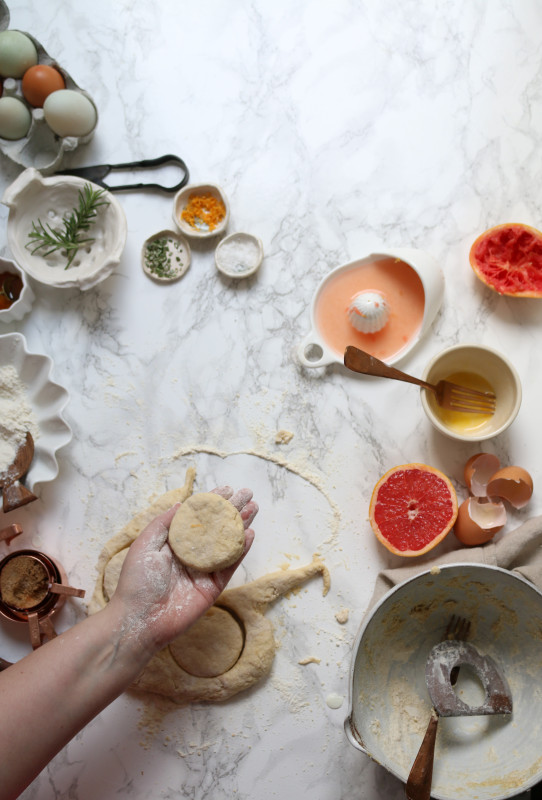
I love scones, maybe it’s because I’m from Devon the home of the cream teas?. I love to mix up the flavours and these ones where pink grapefruit and rosemary. I have a rosemary bush so I cut it straight from garden, can’t get any fresher than that!. Usually I use cream in my scones but I decided to use buttermilk this time and they where the best I have ever made. I think the secret to a good scone is not to over work the dough too much, I don’t use a rolling pin I just flatten it with my hands, then when you glaze them make sure you don’t get any of the liquid on the sides of the scones this with stop them from rising as much. There’s something so therapeutic about making scones by hand and not in a food processor, I recommend you try it if like me you tend to rely on your gadgets too much, (I always use my food processor and mixer so it was nice to get back to basics)
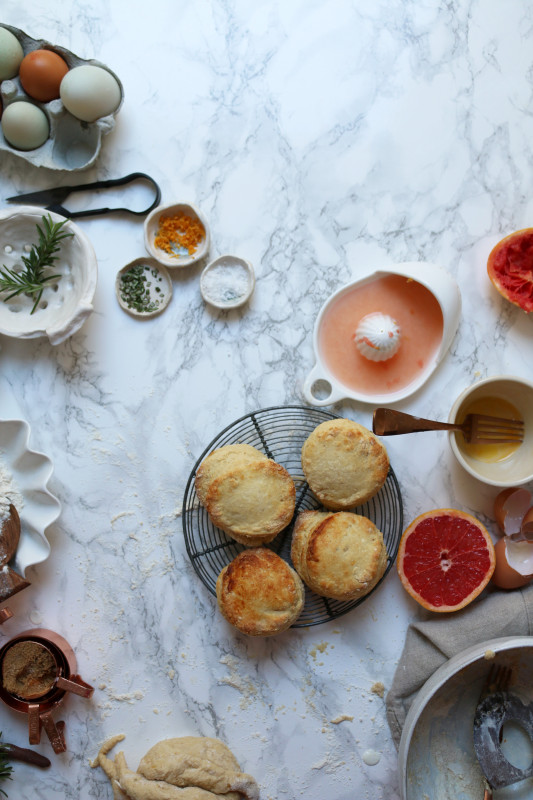

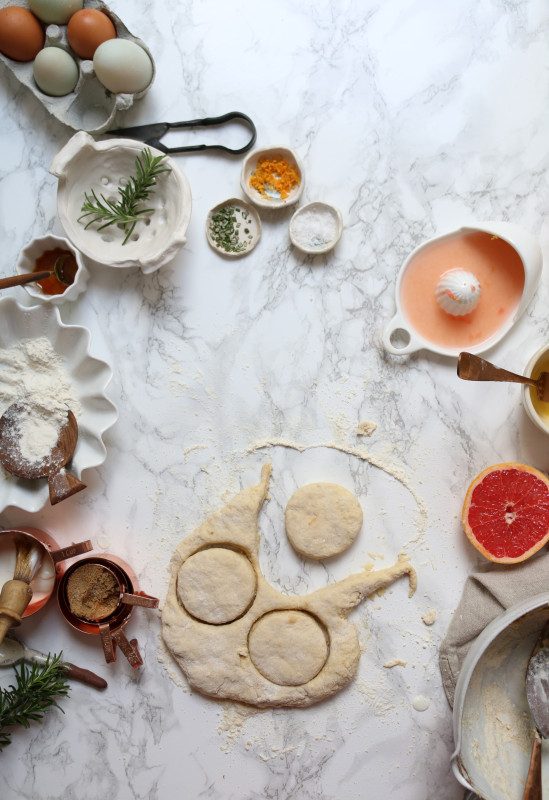
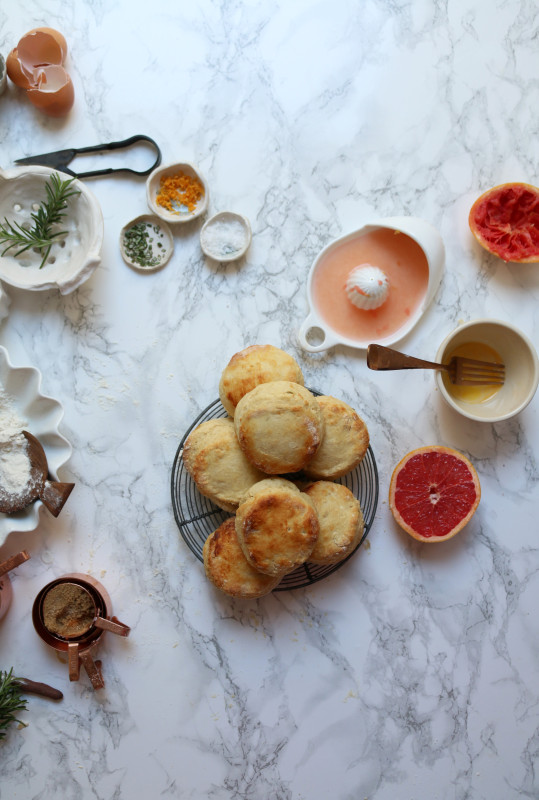
- 450g (1 lb) self-raising flour
- 2 rounded teaspoons baking powder
- 75g (3 oz) butter, at room temperature
- 50g (2 oz) brown sugar
- 2 eggs
- about 225 ml (8 fl oz) buttermilk
- zest of one ruby grapefruit and 3 tbsp juice
- 1tsp finely chopped fresh rosemary
(adapted from a Mary berry recipe)
Lightly grease two baking trays. Pre-heat the oven to 220°C/425°F/Gas 7.
add the flour and baking powder into a bowl. Add the butter and and cut together until a crumble forms, then add the sugar, zest and rosemary.
Beat the eggs together until blended and make up to a generous 300ml (1/2 pint) with the buttermilk, then put about 2 tablespoons of the egg/buttermilk aside in a cup for glazing the scones later. Gradually add the egg/buttermilk mixture and juice to the dry ingredients until you have a soft dough. Its better that for scone mixture to be on the wet side, as the scones will rise better.
Turn the dough onto a lightly floured surface and flatten it out with your hand, or use a rolling pin, to a thickness of 1-2 cm, (mine where about 1 inch) Use a 5 cm (2 inch) cutter to stamp out the dough by pushing the cutter straight down into the dough (as opposed to twisting the cutter) then lift it straight out. This ensures that the scones will rise evenly and keep their shape. Gently push the remaining dough together, knead very lightly then re-roll and cut more scones out as before.
i used a larger cutter as i wanted big scones.
Arrange the scones on the prepared baking trays and brush the tops with the reserved beaten egg/milk mixture to glaze. Bake for about 10-15 minutes or until the scones are well risen and golden. Cool on a wire rack.
We ate these with some clotted cream and grapefruit jam it was lovely.


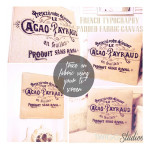
Scone perfection! Such interesting flavours as well.
There are some things I still like to make by hand and not use a machine, I generally whip cream by hand and make pastry by hand.
So I completely understand and agree that it is nice to make things by hand now and again.
Hi Aimee,
I love scones too and these ones are going to be my weekend treat :)).
Cheers,
Lia
i LOVE a classic british scones.. and this is such a unique take on them aimee. definitely a recipe i need to try out Xx
You really can’t go wrong with buttermilk scones, but I am especially loving the addition of grapefruit and rosemary. These photos are just gorgeous, too!
Thankyou so much tessa xxx
These are sitting on my cooling rack now! I had a lot of issues with this recipe but it still tastes pretty good, especially with clotted cream. For reference, I’m in America. We don’t really have self-raising flour here (I went to all the major grocery stores around me) and decided to make my own, but with the baking powder in the recipe it came out to 6 and a half teaspoons of baking soda! Way too much, so next time I would halve that. Also (possibly due to the large amount of baking soda) it was very dry, and it doesn’t say where to add the juice but I added it with the buttermilk and had to add an extra 50 ml of buttermilk and double the juice. They took about 10 minutes longer in the oven for me than the recipe called for, and they hadn’t risen as much as I would have liked.
The taste is really good though! I plan on making these again and tweaking it to see where it deviates (perhaps UK self raising flour is different to ours) because they are yummy.
yes our self raising flour doesn’t have that much baking soda next time I recommend adding 2 tsp of baking powder with the plain flour xx